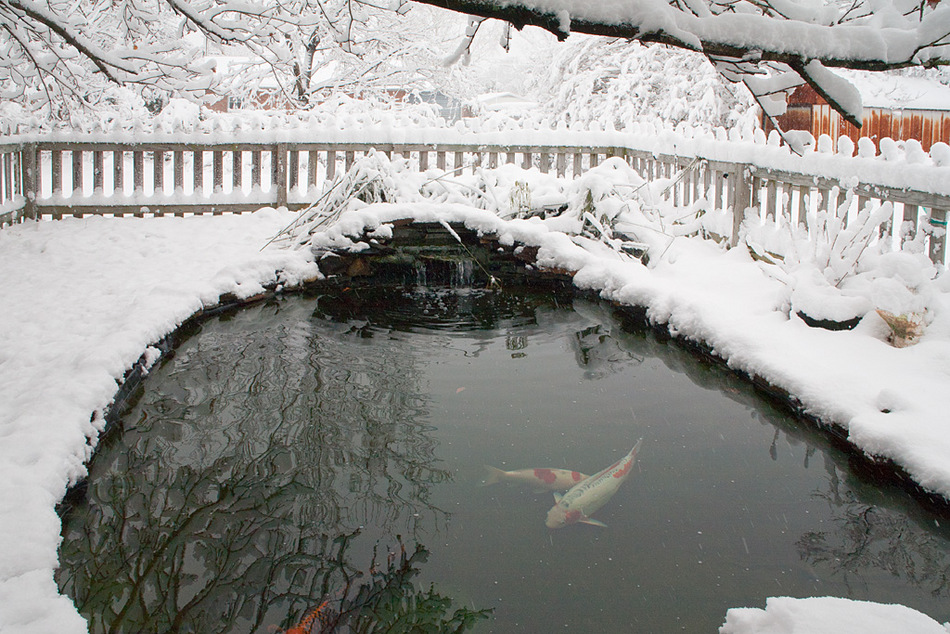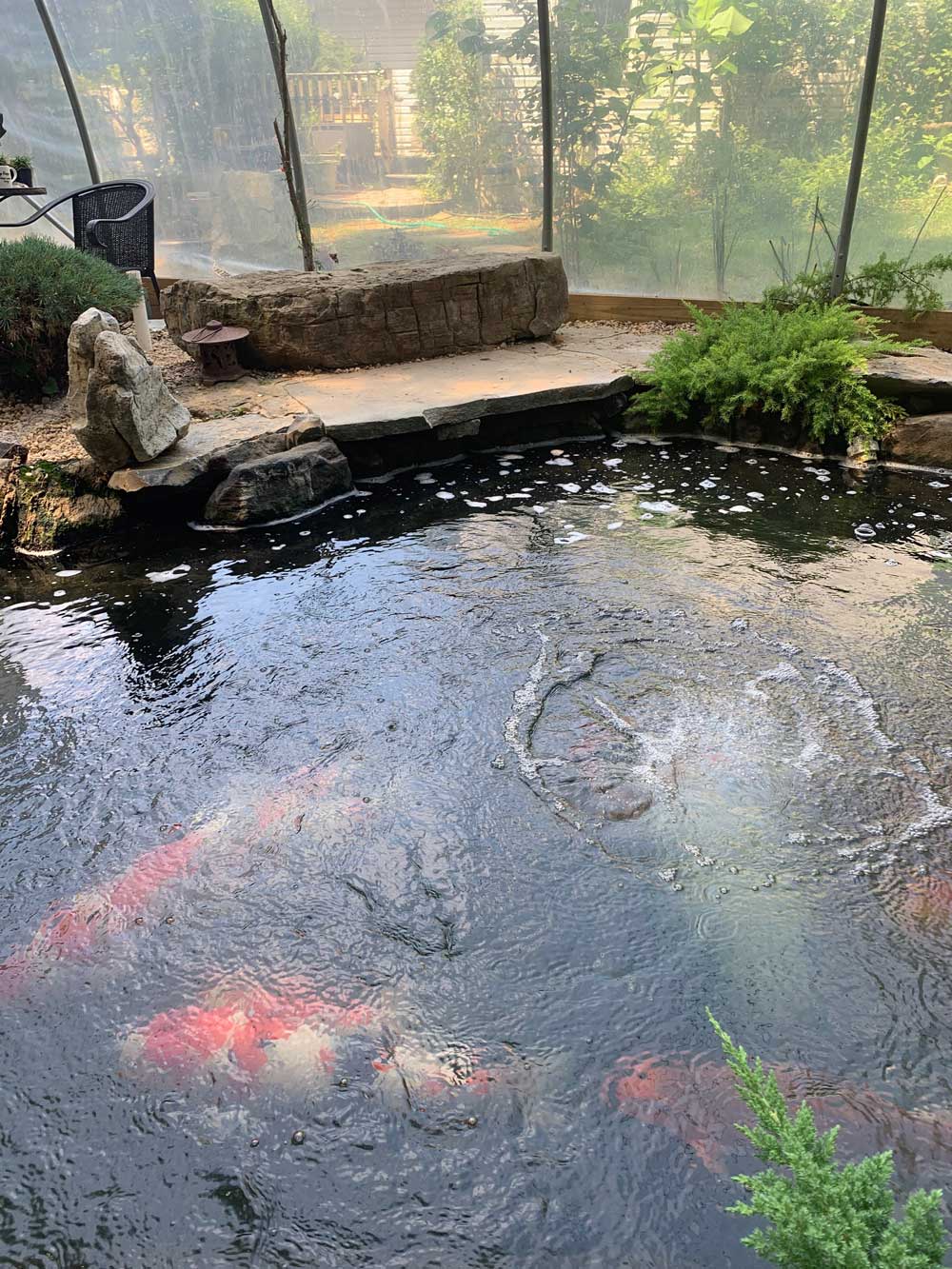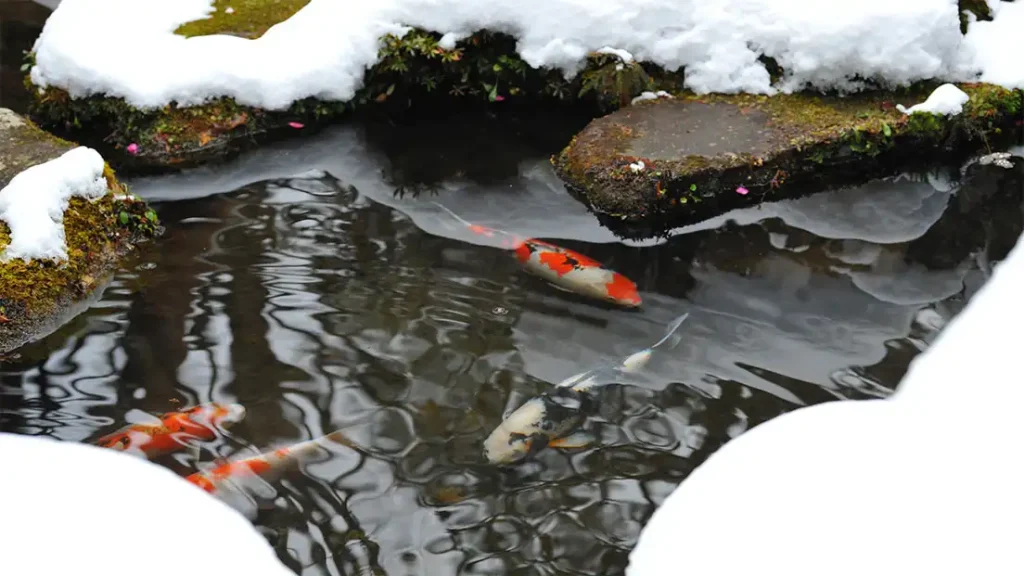Keeping a koi pond from freezing is crucial to ensure the well-being of your beloved koi fish during the cold winter months. When temperatures drop, it’s essential to take proactive measures to prevent your pond from completely freezing over, as this can be harmful to the fish and the overall ecosystem of the pond.
1. Install a Pond Heater
One of the most effective ways to keep a koi pond from freezing is by installing a pond heater. Pond heaters are designed to keep a portion of the pond’s surface ice-free, allowing for proper gas exchange to take place. This helps prevent harmful gases from building up under the ice and ensures that your koi fish have access to oxygen.
2. Use a De-Icer
Another option to prevent your koi pond from freezing is by using a de-icer. De-icers are floating devices that are placed in the pond to keep a small area of the water surface ice-free. They are energy-efficient and can be a great solution for smaller ponds or areas with milder winters.

Credit: nextdaykoi.com
3. Maintain Water Circulation
Keeping the water circulating in your koi pond is essential to prevent freezing. A pump or aerator can help maintain water movement, which in turn helps prevent ice from forming on the surface. Water circulation also helps distribute heat evenly throughout the pond, keeping the temperature stable for your koi fish.
4. Insulate the Pond
Insulating your koi pond can help retain heat and prevent it from freezing over. You can use materials such as pond netting, foam insulation, or even hay bales to cover the pond and protect it from the cold temperatures. Be sure to insulate the sides and bottom of the pond as well to provide additional protection.

Credit: www.kodamakoifarm.com
5. Monitor Water Temperature
Regularly monitor the water temperature in your koi pond to ensure it stays within a safe range for your fish. Invest in a pond thermometer to keep track of the temperature and make adjustments as needed. If the temperature drops too low, consider using additional heating methods to keep the pond from freezing.
6. Provide Shelter for Your Koi Fish
During the winter months, it’s important to provide shelter for your koi fish to help them stay warm and protected. You can add floating plants, fish caves, or even a koi house to give your fish a place to escape the cold. These shelters also provide a safe space for your fish to rest and reduce stress during the winter.
7. Avoid Feeding Your Koi Fish in Cold Weather
As the temperature drops, your koi fish’s metabolism slows down, and they require less food. Avoid feeding your koi fish when the water temperature is below 50°F (10°C) to prevent digestive issues and maintain water quality. Resume feeding once the temperature warms up in the spring.
8. Keep Snow off the Pond
After a snowfall, make sure to remove any snow from the surface of your koi pond. Snow can insulate the water, preventing heat from escaping and causing the pond to freeze more quickly. Use a soft broom or brush to gently clear the snow without disturbing the fish or pond environment.
9. Consider a Greenhouse or Pond Cover
If you live in an area with extremely cold winters, you may want to consider installing a greenhouse or pond cover over your koi pond. This can provide additional protection from the elements and help maintain a more stable temperature inside the pond, reducing the risk of freezing.
10. Prepare Your Koi Pond Early
It’s important to start preparing your koi pond for winter early to ensure that everything is in place before the cold weather sets in. Check all equipment, heaters, and de-icers to make sure they are working properly, and address any issues ahead of time to avoid problems later on.
Conclusion
Keeping a koi pond from freezing is essential for the health and well-being of your fish. By taking proactive measures such as installing a pond heater, using a de-icer, maintaining water circulation, insulating the pond, and providing shelter for your koi fish, you can ensure that your pond remains ice-free throughout the winter months. Remember to monitor water temperature, avoid overfeeding your fish, and prepare your pond early to keep your koi happy and healthy all winter long.





